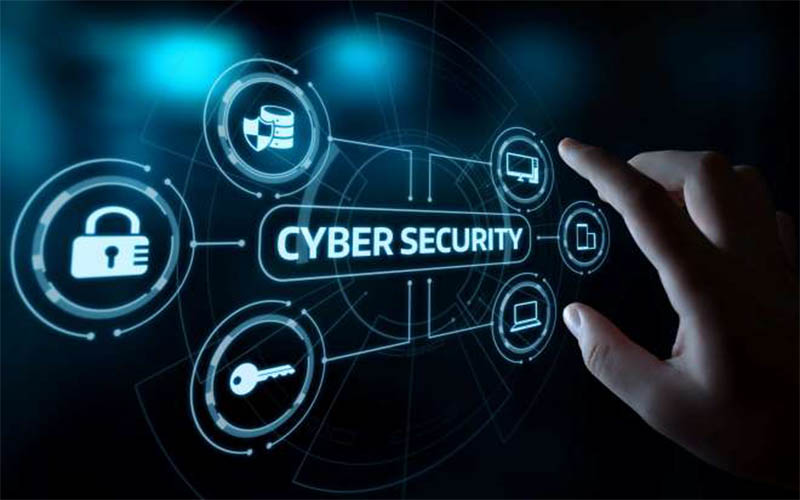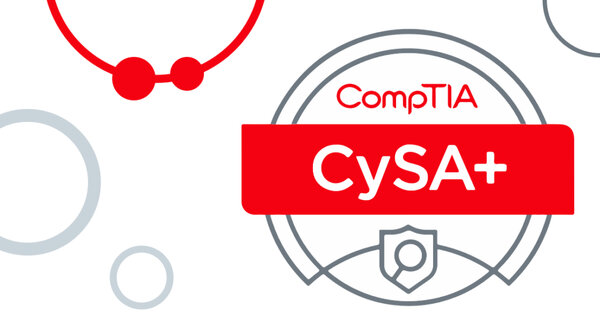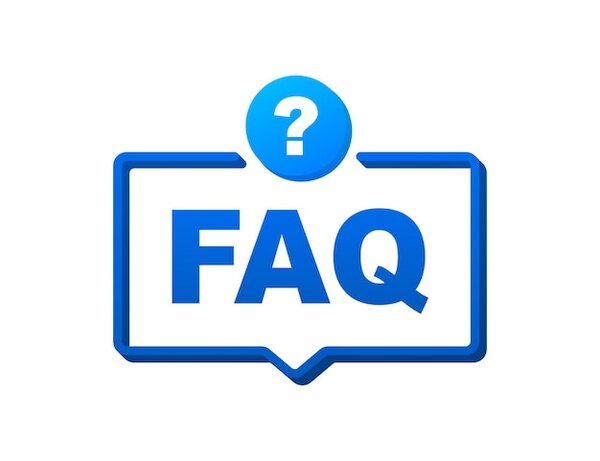In the ever-evolving realm of cybersecurity, professionals seeking to enhance their skills and credentials often turn to certifications to validate their expertise. Two widely recognized certifications in the field are CEH and CySA+. While these certifications focus on different aspects of cybersecurity, they share a common objective of safeguarding organizations against cyber threats.
CEH provides individuals with knowledge and techniques in ethical hacking and penetration testing, equipping them to proactively identify and mitigate vulnerabilities. On the other hand, CySA+ emphasizes cybersecurity analysis and threat detection, empowering professionals to effectively analyze and respond to security incidents.
In this comparison, we will delve into the specifics of these certifications, including their requirements, the skills and knowledge they encompass, potential job roles and career paths, as well as industry recognition and demand. By understanding the distinctions between CEH and CySA+, you will gain valuable insights to make an informed decision based on your career aspirations and interests in the cybersecurity field.

EC-Council CEH Certification
CEH, short for Certified Ethical Hacker, is a certification program designed to educate individuals on identifying and exploiting security vulnerabilities in order to safeguard systems and networks. Ethical hackers, as the name suggests, are certified professionals authorized to penetrate a company’s computer systems, with proper permission, to assess potential vulnerabilities. Furthermore, ethical hackers are responsible for implementing preventive and corrective measures to ensure protection against real-world attacks that may occur in the future.
The CEH certification carries international recognition and is highly esteemed within the industry. In order to obtain the CEH certification, candidates must successfully complete an accredited Ethical Hacking training course and pass the associated exam. The training course covers a wide range of topics, including network security, cryptography, networking, and the methodology of ethical hacking. Upon fulfilling the course requirements and passing the exam, candidates are granted the CEH credential.
The CEH certification serves as evidence of your foundational knowledge in utilizing an ethical hacking methodology and framework to protect systems. The EC-Council CEH certification is an advanced security certification that incorporates the latest advancements in the field, including new hacking techniques, exploits, and automated programs. The CEH exam objectives cover the following areas:
- Sniffing
- Hacking
- Enumeration
- Cryptography
- SQL Injection
- System Hacking
- Malware Threats
- Denial of Service
- Cloud Computing
- Session Hijacking
- Social Engineering
- Scanning Networks
- Hacking Mobile Platforms
- Hacking Web Applications
- Hacking Wireless Networks
- Introduction to Ethical Hacking
- Footprinting and Reconnaissance
- Evading IDS, Firewalls, and Honeypots
CompTIA CySA+ Certification
The CompTIA Cybersecurity Analyst (CySA+) certification validates that successful candidates possess the knowledge and skills necessary to detect and analyze indicators of malicious activity, understand threat intelligence and threat management, respond to attacks and vulnerabilities, perform incident response, and report and communicate related activities. This certification was updated in June 2023, with the exam code CS0-003.
What sets the CompTIA CySA+ certification apart from other certifications in the market is its focus on security analytics, offering a deeper level of insight in this area. Unlike other certifications, CySA+ delves into analytics with greater detail and thoroughness. The exam objectives for CySA+ are as follows:
-
Security Operations
-
Vulnerability Management
-
Incident Response and Management
- Reporting and Communication
Comparison of CEH vs CySA+
Experience Requirements
Regarding the eligibility for the CEH certification exam, candidates who are below 18 years old cannot attend an official training course or attempt the certification exam unless they provide written consent from their parent or legal guardian. Additionally, they need to submit a supporting letter from a nationally accredited institution of higher learning.
The CEH certification requirements are relatively less strict compared to other popular cybersecurity professional certifications. As a result, CEH is often considered an entry-level certification but is undoubtedly essential for individuals seeking employment in offensive cybersecurity roles.
On the other hand, individuals from diverse backgrounds and varying experience levels in IT and cybersecurity choose to take the CompTIA CySA+ exam. While there are no specific prerequisites for the CySA+ certification, it is recommended to have a minimum of four years of hands-on experience in information security or related fields before attempting the exam.
The CySA+ certification is designed to follow the CompTIA Security+ certification or equivalent experience, focusing on technical and practical aspects. The extent and quality of your previous experience in cybersecurity and analysis play a significant role in bridging the knowledge gap between your current knowledge and the expected knowledge for the certification.
Examination Factors
CEH Exam
The CEH exam comprises 125 multiple-choice questions, and candidates are given a time limit of four hours to complete the exam. Due to the multiple-choice format, test-takers rarely experience time constraints during the exam. It is commonly reported that candidates generally require two to three hours to finish the test. Aspiring test-takers should be aware that the exam is challenging, and thorough preparation is necessary. Many individuals dedicate several months to obtain the Free CEH V12 Practice Test and prepare for the actual CEH exam.
When taking the exam at a physical testing center, authorized personnel at the testing center will act as proctors. Pearson VUE testing centers offer the option to take the CEH exam, and EC-Council has established Pearson VUE test centers in various locations, including their Accredited Training Centers.
The passing score for the CEH exam can range from 60% to 80%, depending on the specific exam form or bank of questions administered during the exam. Since the difficulty level of different question banks can vary, the passing score is adjusted accordingly.
CySA+ Exam
CompTIA CySA+ stands out as the only intermediate high-stakes cybersecurity analyst certification that includes performance-based questions. The exam consists of a maximum of 85 questions and allows a duration of 165 minutes to complete. The question types include multiple-choice and performance-based questions. Multiple-choice questions are further classified into single- and multiple-response options. The performance-based items evaluate your problem-solving skills in a simulated environment.
The CySA+ test covers four domains that align with the core responsibilities of a cybersecurity analyst:
- Security Operations (33%)
- Vulnerability Management (30%)
- Incident Response Management (20%)
- Reporting and Communication (17%)
The focus is on monitoring and identifying vulnerabilities that arise from insecure systems and software, irrespective of the programming language, while effectively responding to threats. For example, a performance-based question may require you to plan, install, configure, monitor, and analyze an intrusion detection system (IDS) or SIEM. Analyzing the output of such tools to determine threats is an example of the practical scenarios you may encounter. Other questions may relate to continuous monitoring activities such as log reviews, impact analysis, and response.
CompTIA certification exams are conducted under proctored conditions at secure Pearson VUE testing centers. CySA+ is a cutting-edge security analyst certification that addresses advanced persistent threats within the cybersecurity landscape post-2014. The passing score for the CySA+ exam was established at 750 on the 100-900 scale.
Successful candidates often report that a well-planned study program, comprising a few hours each day over an extended period, is helpful. There are numerous CySA+ Practice Tests available online.
Area of Focus
Having a deep understanding of offensive strategies commonly employed against their systems is crucial for establishing an effective defense. The widespread support and recognition of the CEH certification highlight the security industry’s demand for a reliable method of identifying individuals with such skills. Feedback from post-exam reports indicates that the exam covers various topics, including hacking methodologies, scanning techniques, different types of port scans, and appropriate response strategies. Familiarity with tools such as Nmap, Wireshark, Snort, OpenSSL, Netstat, and Hping has been reported as beneficial for test-takers.
To attain the C|EH credential, candidates must demonstrate their practical knowledge in nine different domains:
- Information security and ethical hacking
- Reconnaissance techniques
- System hacking phases and attack techniques
- Network and perimeter hacking
- Web application hacking
- Wireless network hacking
- Mobile, Internet of Things (IoT), and operational technology (OT) hacking
- Cloud computing
- Cryptography
On the other hand, the CompTIA CySA+ exam encompasses the following domains and topics:
- Security Operations: Enhancing security operations processes, distinguishing between the concepts of threat intelligence and threat hunting, and employing the suitable tools and techniques to identify and analyze malicious activity.
- Vulnerability Management: Executing vulnerability assessments, analyzing the results, prioritizing vulnerabilities, and providing recommendations for mitigating attacks and responding to vulnerabilities.
- Incident Response and Management: Utilizing contemporary attack methodology frameworks, carrying out incident response activities, and comprehending the lifecycle of incident management.
- Reporting and Communication: Implementing communication best practices in vulnerability management and incident response, specifically in regard to stakeholders, action plans, escalation, and metrics.
Certification Cost and Renewal Requirements
The overall cost of acquiring a professional certification can vary depending on the candidate’s level of experience and prior training. In addition to the application fee, exam fee, and training course costs, candidates are likely to encounter expenses for independent study materials and ongoing certification maintenance.

For applicants taking the CEH exam, there is a non-refundable application fee of $100. The application approval process typically takes five to ten working days once all the required information has been submitted to EC-Council. Once the application is approved, candidates must purchase an exam voucher either from the EC-Council Online Store or an authorized training partner. While EC-Council does not set a minimum price for exam vouchers sold by authorized partners, the cost of an exam voucher is $1,199 when purchased directly from the EC-Council Store.
To maintain the CEH certification, candidates are required to earn 120 Continuing Professional Education (CPE) credits within a three-year period. These credits can be obtained through various activities such as attending conferences, writing research papers, teaching training classes in a related domain, reading materials on relevant subject matters, and participating in webinars. Generally, acquiring the necessary CPE credits incurs several hundred dollars in expenses each year.
On the other hand, the retail price for CompTIA CySA+ (CS0-003) is $404. CompTIA provides several options to reduce this cost.
The CompTIA Cybersecurity Analyst (CySA+) certification remains valid for three years from the date of passing the certification exam. To extend the certification for an additional three-year period, you can take advantage of the continuing education (CE) program offered by CompTIA. There are three renewal options available:
- Training: CompTIA offers CertMaster CE training courses, which can be completed online and serve as a means to renew your certification without retaking the exam. Some individuals have successfully renewed their certifications in as little as six hours or less by utilizing CertMaster CE if it is available for their specific certification.
- Certification and Recertification Exams: Renewal of your CompTIA CySA+ certification can be achieved by taking a recertification exam. Alternatively, you can qualify for renewal by obtaining higher IT-industry certifications or higher-level CompTIA certifications. Another option is to pass the latest release of the CompTIA CySA+ exam.
- Activities: Engaging in various qualifying activities can earn you Continuing Education Units (CEUs), which are required to accumulate for the purpose of renewing your certification. For CompTIA CySA+, 60 CEUs are needed to fulfill the renewal requirements.
Job Roles
By acquiring the CEH certification, individuals demonstrate their possession of the essential skills to pursue a range of job roles, including but not limited to:
- Security Analyst
- Computer Forensics Analyst
- Security Specialist
- Penetration Tester
- Security Engineer
- Security Code Auditor
- Malware Analyst
- Security Consultant
On the other hand, the CompTIA CySA+ certification equips professionals with the knowledge and capabilities necessary for various cybersecurity positions, such as:
- Cybersecurity Analyst
- Incident Response Analyst
- Threat Hunter
- Security Operations Center (SOC) Analyst
- Vulnerability Management Analyst
- Cybersecurity Engineer
Why Choose CEH?
If you’re seeking a career in cybersecurity, the Certified Ethical Hacker (CEH) credential may be a suitable choice for you. Here are some reasons explaining why CEH is widely recognized among security professionals:
Process Monitoring
One of the key advantages of CEH is that it teaches you how to monitor processes and identify potential signs of attacks. This skill is crucial in today’s cybersecurity landscape, as attackers continuously seek new methods to exploit systems.
CEH also equips you with reporting tools that can aid in tracking down malicious activity. These tools are invaluable in an organization’s fight against cybercrime. Furthermore, the certification covers a broad range of topics, including network security and application security, making it an excellent choice for individuals seeking a comprehensive education in cybersecurity.
System Hacking Process
Perhaps the most unique aspect of CEH is that it teaches you how to legally and ethically hack systems. When comparing CEH vs CySA+, it’s important to remember that a Certified Ethical Hacker is a skilled professional who comprehends how to identify weaknesses and vulnerabilities in target systems.
The CEH exam encompasses essential topics related to system hacking, such as footprinting, scanning, enumeration, system hacking, viruses and worms, Trojans, backdoors, denial of service attacks, social engineering, session hijacking, web application attacks, SQL injection, buffer overflows, and more.
Certified ethical hackers utilize their skills to safeguard organizations from data breaches by identifying network and system vulnerabilities, and subsequently recommending measures to mitigate those risks. They employ the same techniques as criminal hackers, but they do so ethically and within the confines of the law.
Security and Risk Management
Data security is increasingly crucial in today’s world. Businesses, regardless of their size, must take measures to safeguard their information from hackers and other cyber threats. The CEH program is specifically designed to assist organizations in identifying and mitigating cybersecurity risks.
CEH certification demonstrates a comprehensive understanding of detecting, exploiting, and preventing vulnerabilities in computer systems. The curriculum covers subjects such as network security, risk management, and ethical hacking principles.
CEH certification is widely recognized in the business sphere and is frequently a requirement for employment in cybersecurity roles. Achieving your CEH certification can set you apart from others and showcase your commitment to data security.
Asset Security
In today’s digital world, having a strong understanding of asset security is more crucial than ever. This is where ethical hackers play a significant role. When comparing CEH vs. CySA+, individuals holding CEH certification possess the necessary skills and knowledge to identify vulnerabilities in an organization’s systems and effectively mitigate associated risks.
By pursuing CEH certification, you can demonstrate to employers your commitment to safeguarding their assets and ensuring the security of their data. Additionally, CEH certification can help you distinguish yourself in a competitive job market. Obtaining CEH certification is a wise decision for anyone looking to enter or advance their career in asset security.
Why Choose CySA+?
CompTIA exams undergo an intensive development process that includes workshops where IT professionals collaborate to determine the knowledge, skills, and abilities necessary for specific job roles. As a result, the topics covered by CompTIA CySA+ align with the current requirements for cybersecurity analysts. Here are some reasons explaining why CompTIA CySA+ is widely recognized among security professionals:

Competency of Current Trends
The certification renders you a valuable team member and showcases your knowledge of current trends impacting the daily work of security analysts, such as cloud and hybrid environments.
Additionally, CompTIA CySA+ is a vendor-neutral certification, enabling the knowledge and skills you acquire to be applied across various job roles, irrespective of the specific programs and tools employed. In contrast, vendor-specific certifications solely prepare you for working with a single platform.
Proactive Monitoring and Detection
Demonstrate your proficiency in detecting and analyzing indicators of malicious activity using the most up-to-date methods and tools, including threat intelligence, security information and event management (SIEM), endpoint detection and response (EDR), and extended detection and response (XDR).
Response to Threats, Attacks and Vulnerabilities
CompTIA CySA+ validates your comprehension of incident response and vulnerability management processes, while emphasizing the critical communication skills necessary for security analysis and compliance.
CompTIA CySA+ stands as the sole intermediate high-stakes cybersecurity analyst certification incorporating hands-on, performance-based questions alongside multiple-choice questions. It covers the most current core cybersecurity analyst skills and upcoming job skills employed by threat intelligence analysts, application security analysts, compliance analysts, incident responders/handlers, and threat hunters. It introduces new techniques for combating threats both inside and outside of the Security Operations Center (SOC).
FAQs

Will CySA+ get you a job?
Individuals possessing the CySA+ certification are sought after by businesses of all sizes. However, certain organizations are known for hiring a larger-than-average number of CySA+ holders. Therefore, when you embark on your job search, it would be wise to give special consideration to these companies.
What is CySA+ equivalent to?
CySA+ specialists demonstrate expertise in system threat detection and data analysis methodologies. Professionals who obtain the CySA+ designation acquire credentials that are equivalent to those obtained through the combination of the CompTIA Security+ exam and the PenTest+ certification.
Can I take CySA+ without experience?
Candidates pursuing the CompTIA CySA+ certification come from diverse backgrounds and possess varying levels of experience in IT and cybersecurity. While there are no specific prerequisites for the CompTIA CySA+ exam, it is advisable to have a minimum four years of practical information security or related experience before attempting the exam.
Is CEH good for beginners?
CEH incorporates a diverse range of penetration tools and testing. It is primarily considered an entry-level certification suitable for individuals who are not penetration testers and lack extensive security knowledge.
Who should take CEH certification?
As stated by the EC-Council, the Certified Ethical Hacker certification is intended to enhance the practical knowledge of security officers, auditors, security professionals, site administrators, and individuals who prioritize the integrity of network infrastructure. This certification holds value from a vendor-neutral perspective.
Conclusion
In short, the decision between CEH and CySA+ certifications depends on your career goals, interests, and the specific roles you aim to pursue in the cybersecurity field. Each certification offers a unique focus and area of expertise. If you are interested in ethical hacking, penetration testing, and understanding security vulnerabilities to protect systems, the CEH certification may be a suitable choice. On the other hand, if you are more inclined towards incident detection, prevention, and response, the CySA+ certification is worth considering.
Both certifications hold global recognition and demonstrate a commitment to advancing your cybersecurity skills. They provide opportunities to expand your knowledge, enhance your professional credibility, and increase job prospects. Additionally, the renewal options offered by both certifications ensure that your knowledge remains up to date in a rapidly evolving field.
To make an informed decision that aligns with your professional goals, it is advisable to thoroughly research the objectives, domains, and career paths associated with each certification.

PCCN vs CCRN: Which Certification Should I Take?
In this discussion, we will examine the fundamental distinctions between PCCN vs CCRN certifications, allowing you to make an informed and right decision about which certification is best for your nursing career progression.
June 20, 2023

Is PCCN Worth It? A Comprehensive 2024 Study Guide
In this article, we will provide all the enrollment criteria, how to apply, whether is PCCN worth it for you to obtain, and how to get a high mark.
June 20, 2023

PCCN Requirements - How to Become a Progressive Care Certified Nurse?
To become a progressive care nurse, you must first obtain the PCCN certification. This post will help you understand PCCN certification, PCCN requirements, and efficient approaches to obtaining this certification.
June 20, 2023
